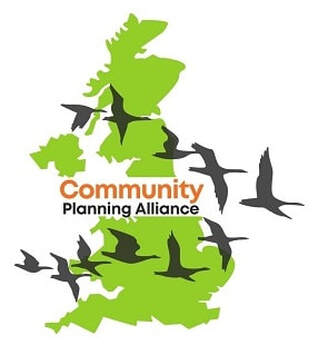(Site Path: Resources | Planning | Viability)
Viability Resources
|
Viability plays a huge part in the planning process. A local plan must set out clear policies, and developers are expected to meet the obligations set out in that local plan. This is supposed to be reflected in the price they pay for land. Here's the guidance: Viability - GOV.UK
However, developers often claim that it is impossible to deliver infrastructure or affordable obligations because it will make their project unviable. Usually in these cases it is the affordable housing percentage which is pared back.
|
|
If you are preparing a campaign then we suggest you ask your Council for a copy of the developer’s viability appraisal (if it’s not already on the planning portal). It might seem unfamiliar and a bit technical at first, but here are some of the things to look out for:
- Affordable housing policy. What % affordable housing does your council require, and does it break this down into affordable rent, shared ownership etc? If you don’t know, ask your Councillor or email the planning department. It might also be set out in the viability appraisal.
- Read the developer’s justification for claiming a project is not viable. There might be things that stand out and that you disagree with.
- House prices. Check what assumptions the developer has made about house prices. What is the date that their house prices were calculated? Given how fast prices rise, you may be able to argue that their assumptions are out of date. You can check this against Zoopla’s house price index. If you have a full breakdown of unit types (e.g 4 bedroom houses, 3 bedroom houses etc) then you should check each category. If you find that the house price analysis shows that prices have risen then raise this with your council. Fluctuations in sale price make HUGE differences to viability/profitability.
- Developer profit. Guidance notes that developer profit should sit between 15%-20%. If it’s comfortably at the top of that, or above, then you should argue that the developer can provide more affordable housing or infrastructure, and take a lower profit.
- Ground rent. At the moment some developers are not adding ground rent. but some advisers are still saying they should. It will make a beneficial difference to the developer’s bottom line to add it – which is why they do not want to.
- Finally, read the Council’s viability report which assesses the developer’s appraisal. There may be things in this which help your case and which officers have missed.
If there is anything that seems to indicate that the developer has room for manoeuvre and can deliver more than it wants to then you should let your council know, either by telling the planning team or by asking your councillor to raise it.
How to challenge developers' Viability claims
We are all familiar with stories of developers claiming that their development is not able to provide promised infrastructure or affordable housing, using 'viability' as the excuse. Communities lose out: the housing is built, but without the benefits promised at the outset.
We were therefore delighted when Murray Lloyd, a leading practitioner in viability who regularly acts as an expert witness in planning appeal cases, agreed to help us get a better understanding of what is one of the least understood areas of planning: viability appraisals.
Recorded on March 21st 2023, this session revealed how developers 'game the system' (and they most definitely do) and what the tricks of the trade are. It also demystified viability appraisals and told us what we can challenge and how best to do it.
This really is one of the most important webinars for campaigners to view if we are ever to redress the balance in the system between developers (who deliberately ensure the system is complex), and communities/councils (who need to scrutinise proposals to ensure best outcomes are delivered).
You can also download the presentation pack, which includes all the slides from the event.
House price increases by area in 2021 - courtesy of the Daily Mail
Keep these in mind if you are faced with a developer who claims that his scheme is not viable. Check which house prices they are using in their viability appraisal and from what date. You can then easily check those against local sites like Zoopla and challenge the developer's assumptions.
Planning Inspectorate appeal decision - courtesy of Trafford Council
This 2021 appeal document is regarded as setting out some excellent viability arguments, and in great detail. Paragraphs 121-141 in particular may be of help when drafting planning comments or preparing for an appeal.
Do you have or know of any resources that should be included in this library?
If so, please contact us today!


